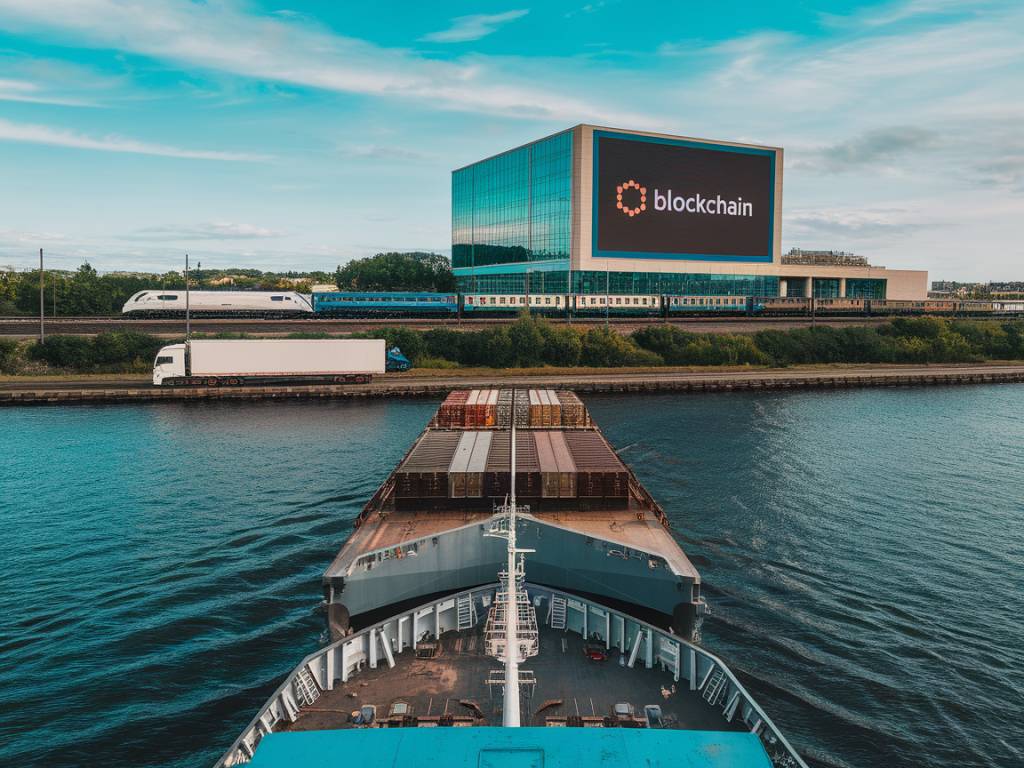The role of blockchain in streamlining supply chains has garnered significant attention in recent years. Blockchain technology, often associated with cryptocurrencies, offers a range of capabilities that can revolutionize how supply chains operate, providing increased transparency, security, and efficiency. This article delves into various case studies and practical applications of blockchain in supply chain management, highlighting how this innovative technology is transforming the logistics landscape.
Understanding Blockchain Technology
Blockchain is a decentralized ledger that records transactions across multiple computers. It ensures the security and immutability of data using cryptographic algorithms. Each transaction is called a « block, » and these blocks are linked together in a « chain. » This technology’s inherent transparency and security features make it an ideal candidate for improving supply chains.
Challenges in Traditional Supply Chains
Traditional supply chains are often plagued by several issues:
- Lack of transparency
- Data silos
- Inefficiencies due to manual processes
- High costs
- Vulnerability to fraud
These challenges can lead to delays, increased costs, and reduced trust among stakeholders. Blockchain offers practical solutions to these problems.
Key Benefits of Blockchain in Supply Chains
Implementing blockchain technology in supply chains offers several advantages:
- Enhanced Transparency: Every transaction is recorded on a public ledger, providing a clear and immutable history of the product’s journey.
- Improved Security: Blockchain’s cryptographic security ensures that data cannot be tampered with or altered without detection.
- Cost Reduction: Automating processes and reducing the need for intermediaries lower overall costs.
- Traceability: From raw materials to end products, blockchain enables detailed tracking.
- Efficiency: Smart contracts automate transactions and workflows, reducing delays and resulting in quicker processing times.
Case Studies
Walmart and IBM Food Trust
Walmart has teamed up with IBM to create the IBM Food Trust blockchain solution, aiming to improve the traceability of food products. Through this platform, Walmart can track the origin of products such as mangoes and leafy greens within seconds. This capability is particularly valuable in cases of food contamination, where quick identification of the source can prevent widespread illness and economic loss.
Maersk and TradeLens
The shipping giant Maersk, in collaboration with IBM, launched the blockchain platform TradeLens. This solution digitizes the supply chain, providing an end-to-end supply chain visibility and facilitating trust among all parties involved. TradeLens has significantly reduced paperwork and increased information sharing across supply chains, making processes more efficient and transparent.
De Beers and Tracr
De Beers, one of the world’s largest diamond companies, developed the blockchain platform Tracr to ensure the traceability and authenticity of diamonds. This technology tracks diamonds from the mine to the retailer, verifying that each diamond is conflict-free and authentic. Tracr supports the diamond industry’s effort to ensure ethical sourcing and combat the trade of conflict diamonds.
Practical Applications
Smart Contracts
Smart contracts are self-executing contracts with the terms of the agreement directly written into code. In supply chains, they can automate transactions, such as triggering payments when goods are delivered. This reduces the need for intermediaries and escrow services, speeding up processes and reducing costs.
Provenance Tracking
One of blockchain’s most significant advantages is its ability to provide detailed provenance tracking. Companies can trace products through every stage of the supply chain, from the source of raw materials to the final consumer. This transparency helps in ensuring product authenticity and ethical sourcing.
Inventory Management
Blockchain can also enhance inventory management. By recording real-time data on a decentralized ledger, companies can gain better visibility into inventory levels, reducing the likelihood of overstocking or stockouts. This leads to more efficient inventory control and cost savings.
Implementation Challenges
Despite its potential, implementing blockchain in supply chains comes with certain challenges:
- Scalability: Blockchain networks can become slow and expensive as the number of transactions increases.
- Interoperability: Integrating blockchain with existing systems and across different blockchain platforms can be complex.
- Regulatory Issues: The regulatory framework for blockchain technology is still evolving, creating uncertainty for companies.
- Knowledge and Expertise: Implementing blockchain requires specialized knowledge and expertise, which may be a barrier for some organizations.
Future Trends in Blockchain for Supply Chains
As blockchain technology continues to evolve, several trends are likely to shape its application in supply chains:
- Integration with IoT: Combining blockchain with Internet of Things (IoT) devices can provide real-time tracking of goods and enhanced data collection.
- Increased Adoption: As more companies recognize the benefits, blockchain adoption in supply chains is expected to rise.
- Enhanced Security Features: Ongoing advancements in blockchain security will further reduce vulnerabilities and improve trust.
- Development of Standards: Industry-wide standards and best practices will simplify blockchain implementation and increase interoperability.
In summary, blockchain technology has the potential to significantly streamline supply chains by enhancing transparency, improving security, and reducing costs. As companies continue to explore and implement blockchain solutions, it is likely that we will see even more innovative applications and widespread adoption across various industries.
